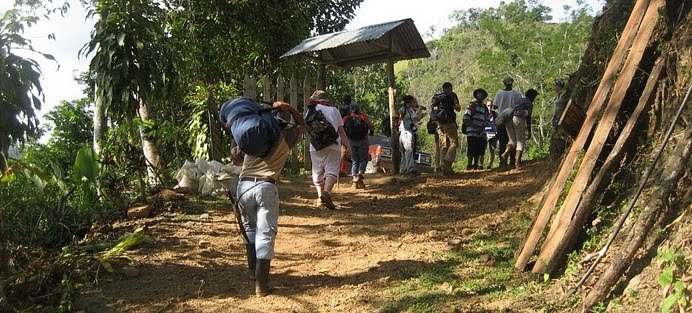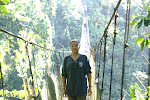ESPSY CAMPBELL INTERVIEW QUESTIONS
1. Why were you so disinterested in politics earlier in your life? (Cherie)
a. Possible follow-up: How have your views changed since then? ( )
2. What personal struggles have you been through that brought you the most insight, improvement or understanding in life? (Arturo)
a. Possible follow-up: Through your years of involvement in politics, what moment would you say has impacted your life the most? (Larry)
3. Who in your life has taught you the most about human dignity and what did they teach you about it? ( )
4. How do your personal beliefs and values influence your political decisions in general? (Alyssa)
5. What is your personal view of power? What makes a person in Costa Rica powerful? (Cherie)
6. What do you think are the most important qualities of a leader? (Kiera)
a. Possible follow-up: What appeals to you the most about being a leader? (Melina)
7. What do you think were the major factors in the outcome of the most recent election in Costa Rica? Do you believe this is a real step forward for women in Costa Rica? ( )
8. What are the most important changes that are necessary in Costa Rica? ( )
a. Possible follow-up: What has your political party tried to change in order to impact Costa Rica’s future? Do you feel you have been successful? ( )
9. In the US, many young people are motivated by the idea of “Going Green.” How do younger Costa Ricans feel about environmentalism? What can be done to increase interest in environmentalism both in Costa Rica and in other countries around the world? (Ashlee)
10. A community organizer from the US named Ernesto Cortes says that you should never do for people what they can do for themselves, because it can lead to “learned helplessness.” What do you feel about this idea, and how do you relate to it in your own work to help the people of Costa Rica, particularly the very poor? (Patrick)
11. How would you ensure that working families will have their basic rights and privileges provided for without creating “learned helplessness?”( )
a. Possible follow-up: How can people in La Carpio be helped?
b. Possible follow-up: What do the people in La Carpio offer to society?
12. What is the ideal balance between economic development and environmental protection? How can you appreciate the importance both without one destroying the other? What role will CAFTA play in this? (Mátyás)
13. How crucial is the creation of new technologies to the development of Costa Rica economically and socially? What are some problems you see with the expansion of these technologies within Costa Rica? ( )
14. Costa Rica has been called the “happiest” country in the world. How do you define happiness, and what conditions are needed to achieve it?” ( La Shai)
15. How practical is it for other countries to abolish their armies the way Costa Rica has done? ( )
16. Laura Chinchilla mentioned that one of her goals is to fight against drug traffickers. Looking at drug wars in Mexico and Colombia, how is Costa Rica affected by these conflicts, and how might Costa Rica have greater success? ( )
17. What is the best way to protect communities against the violence that often comes with drug trafficking? ( )
18. Do you view drugs and drug use as moral issues? What are your beliefs and reasons behind those thoughts? How are those views influencing your policies? ( Emily )
19. Being that Costa Rica is a majority Catholic nation, what role do you believe religion and morality should play in politics? ( )
20. What do you think about the idea of America as an empire, and do you believe that Costa Rica shows any of the qualities of an empire? ( )
21. What can Costa Rica offer the world? What can the rest of the world offer Costa Rica? (Courtney)
22. What would you say to young people who want to pursue a career in politics? ( )
a. Possible follow-up: How do you think they could achieve that?
Name:
INTERVIEW with and OFFICER OF THE US EMBASSY in COSTA RICA
1. Can you explain the construction of this embassy? What makes it so significant compared to other US Embassies in Latin American? Ashlee
2. How has the role of the US Embassy changed in Costa Rica since the time of President Ronald Reagan? Melina
3. What’s the most rewarding part of your job? – Sam
4. What project have you been working on that you think is the most worthwhile cause for the US to be involved in, in Costa Rica? – Kiera
5. How do your personal beliefs and values influence your political decisions in general, if at all?
6. A community organizer named Ernesto Cortes says that you should never do for people what they can do for themselves. Do you feel that the presence of the United States and our military protection of Costa Rica [is creating] “learned helplessness” regarding Costa Rica’s national security? Pat
7. Everywhere we’ve traveled in the last few days we’ve seen advertising by US companies. How does the image of America’s consumer culture influence how Costa Rican’s view our nation? From your interactions with Costa Ricans, how accurate are their views of America or Americans? (Emily)
8. America just ended a year of financial difficulties unmatched since the Great Depression. How has the view of the United States as the leading economic power in the world changed within Costa Rica as result? Internationally? (Siena)
9. What [response] would you give to Costa Ricans who believe CAFTA will only harm farmers and small businesses in Costa Rica? – Arturo
10. How crucial is the creation of new technologies to the development of Costa Rica economically and socially? How will this affect your [work]? Shalyce
11. Costa Rica has been called the “happiest” country in the world. How do you define happiness, and how would you compare happiness experienced by Costa Ricans and Americans? LaShai
12. How can Americans experience greater happiness [and what might we learn from Costa Ricans about this]? Daontay
13. We recently learned that women were only considered fully participating citizens and active members of Costa Rican politics in the 1950’s. How do gender roles within Costa Rican society affect the activities of the US Embassy? (Alyssa)
14. [How] do cultural differences, such as more traditional gender roles, affect your ability to work with Costa Ricans and their government? Danielle
15. How has [the election of a new president in the United States] affected the view of America in the eyes of Costa Ricans? How has this affected your [work]? (Larry)
a. [Follow-Up: What parallels do you see between the election of Barak Obama as the first African-American president in the US with the election of the first female president here in Costa Rica?]
16. Laura Chinchilla mentioned that one of her goals for public safety is to fight against drug traffickers. Looking at drug wars in Mexico and Colombia, how is Costa Rica affected by these conflicts, and how will the US Embassy support her efforts? Mat
17. Do you view drugs and drug use as moral issues? What are your beliefs and reasons behind those thoughts? How are those views influencing your policies? Courtney
18. What is your personal view of power? What makes a person powerful, and would a person be more powerful here in Costa Rica or in the US? ( )
19. What can Americans offer Costa Rica? What can Costa Ricans offer America? (Courtney)
20. What advice would you give to a young person interested in foreign service, especially in Latin America?









